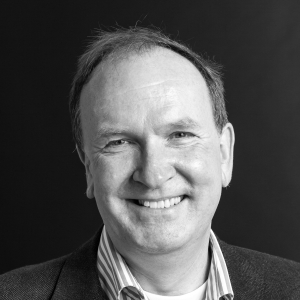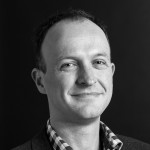Menno Kok and Roel Kamerling, Director and CIO of Medical Delta, a life sciences, health & technology innovation cluster around Leiden, Delft and Rotterdam in the West of the Netherlands, explains how this network aims to stimulate economic growth and provide healthcare solutions by developing, transferring and implementing knowledge in the life sciences, health and technology fields.
Could you introduce Medical Delta as well as its main missions?
MK: Medical Delta is a consortium of top life sciences, health and technology partners in the Netherlands encompassing multiple knowledge institutes and companies in the three main cities of Rotterdam, Leiden and Delft. As the Netherlands has a decentralized healthcare system, the cities and government also play an important role in the development of the cluster. Our overall mission is to improve innovation in health and healthcare through the application of new methodologies and technologies. For us, the link between healthcare and medical technology is an obvious one. This stems from our past as Medical Delta was originally conceived as a collaboration between the region’s two leading medical centers, Leiden University Medical Center (LUMC) and Erasmus University Medical Center, and the Delft University of Technology. Our initial focus was on medical technologies simply because there was an enormous opportunity in mingling the ambitions and the needs of the two hospitals and the technical university and that soon expanded to other sectors in life sciences as well.
What were your main strategic priorities when you became director in 2012?
MK: The priorities now are to intensify the collaboration with companies both locally and internationally. We have created an A+ package for our strategic partners so that we can provide them with the best possible service to meet their needs.
RK: Additionally, we develop what we call living labs. For many companies, it is a challenge to reach the general public and the patient and they need to be able to do this see the impact of their product. As such, we provide companies who want to test their new products or services before they enter them into the market with access to living labs. We aim to further develop these living labs with the ambition of making Holland the preferred European region for conducting pre-market research.
What are the some of the main problems that your members face and how can Medical Delta support them?
MK: For us, the citizen is key to everything. Therefore, instead of following the traditional innovation route completely driven by technology that we have all been guilty of in the past, we are looking at the problems that exist and that we want to solve.
One of the problems faced by companies is being stuck in the development process and being unable to overcome a hurdle. This is where we would step in to see if we could find a partner for this company to help them overcome whatever hurdle might be holding them back. Our role is to help our stakeholders to, for example, find a new partner; a new edge in their own research; new applications for that research. This support is required perhaps more by the smaller, national companies which do not have a large network. We like to describe ourselves as catalysts as we become involved in a process that is stuck and get it going again before moving on to the next project. Medical Delta is not an enormous organization but the Medical Delta network is, of course, much larger and includes hundreds or thousands of people. Being small is one of our main strengths because everyone knows about each other’s projects so that, if someone is very busy, there is always someone else who could do the same job.
Additionally, for any company in healthcare, trying to cross the border is a big challenge. This is the case for small companies in particular and an issue of vital importance given that all but a few percent of their market is outside the country. So that is a real quantum step that these small companies need to be able to make and it is currently limiting much of the growth potential we actually have. Here at Medical Delta, thanks to our strong international network, we can help companies to broaden their market, first in Europe and then worldwide.
What are the main strengths of area to attract and retain companies?
MK: The region has a brilliant, dynamic economy with a lot of knowledge, the best possible healthcare and a lot of growing companies. The regions we cover are a real melting pot of expertize, knowledge, experience and entrepreneurship and there are a lot of opportunities for companies coming here. The answers to most of the big questions that companies have can be found here.
Nonetheless, the region’s greatest asset is, without a doubt, the level of talent and expertize that we can deliver for these companies. All companies require talent and we can really build their human resource capital.
RK: We have a very high level of quality in science here but the access is also very good – Dutch scientists, medical professors, engineers are keen to cooperate with one another and with companies.
MK: The ability of the Dutch to collaborate dates back five hundred years – if we hadn’t learnt the skill of collaboration, we would still have wet feet!
What is it about the Medical Delta territory that makes it such a fertile ground for innovation in the life sciences?
RK: The TU Delft is the largest technical university in the Netherlands and the Erasmus MC is the country’s largest medical center. The LUMC is very strong in drug development and design so there is a lot of quality concentrated in a very small region. South Holland is the most densely populated province in the Netherlands. The region is also home to the Leiden BioScience Park, which boasts a large number of biotech and pharma companies and, for the region in total, there are more than 400 companies dedicated to life sciences, health & technology.
MK: The facilities here are also excellent. Medical Delta is the No1 region in the Netherlands carrying out clinical trials, making it an interesting place for pharma companies. The world is our playing field for pharmaceuticals because pharma companies do not recognize borders. However, two thirds of the clinical trials being carried out here are being led by investigators rather than companies, which means there is great potential for the foundation of spin off companies.
We have long thought that most innovation should come from the universities because they have the flexibility to be able to do what they want as well as the continuity and expertize. However, it normally involves blind knowledge which isn’t always applicable so you need companies to come in at an earlier stage, perhaps not always as an active partner but at least as a partner to communicate with and which can give direction to projects to arrive at more translatable results. In the end, it is the scientist that decides but the idea behind bringing them together earlier in the process is to increase company interest in university-based developments and allowing university researchers to make applications for their science more easily.
Are there any particularly exciting companies in the Medical Delta region that you would like to highlight?
MK: One company which we are very excited by and where we see great potential for rapid growth is Skyline DX. They develop and commercialize innovative gene signature-based diagnostic tests and their next product will amplify their present success. I think they are very close to a real breakthrough because, at both a European and global level, we are coming to understand how important personalized medicine will be.
RK: Many of the companies we are very excited about are still in the earlier growth phases such as Mimetas. My prediction is that companies such as Mimetas, Ocello, Skyline DX and Pluriomics, which are developing platform technologies for drug design, are going to grow rapidly. They are all starting to mature and they have a strong position in the world with international pharma players as their customers.
What are the key milestones that you would like to achieve at Medical Delta over the next five years?
MK: Over the next five years, we would like to have at least half of the companies relevant to our technological focus part of the Medical Delta network as preferred partners. Secondly, we want to be recognized as a European expertize center in living lab type approaches. In two or three years we should be able to convince companies, municipalities, insurance companies etc that if they have a new product then the best and swiftest way to the market is via one of our living labs. As the final step before market entry, this will allow them to mold their products and business model quickly to adapt to the market.
RK: We also want to be the first region where proton therapy is made available. The operation must be up and running next year and it is going to be the first facility in the Netherlands to offer this kind of cancer therapy. Furthermore, one of our ambitions is to develop alternatives to animal testing to make drug development more specific, predictable as well as quicker and cheaper. Another key theme that we would like to advance locally is the move from institutionalized healthcare to care at home and self-care.








